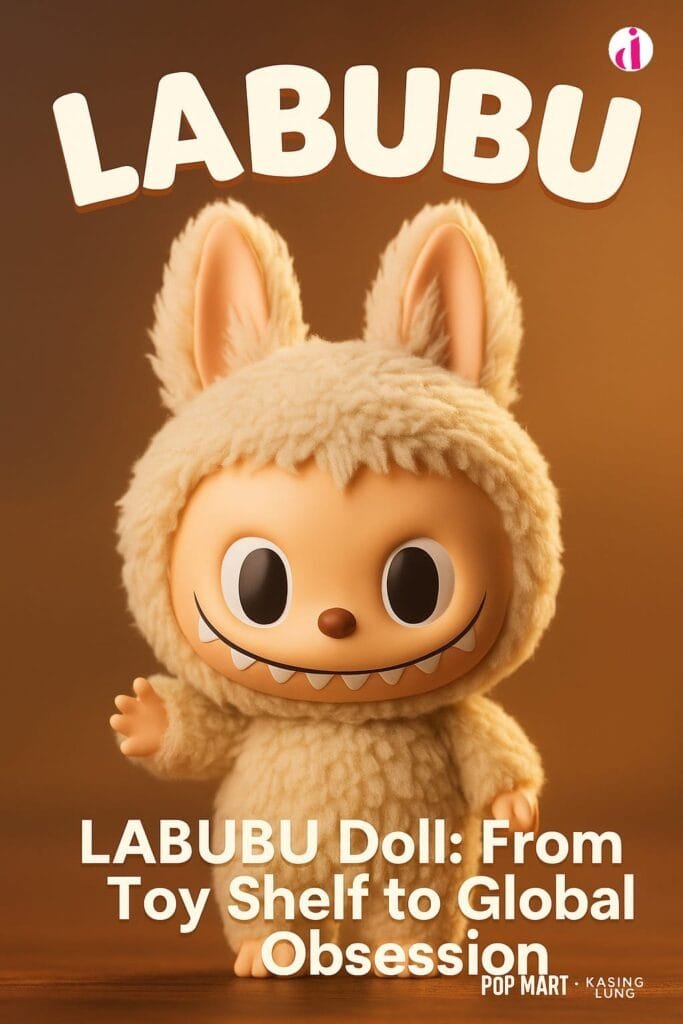
Discover the real story behind the Labubu Doll. From secret variants to rare editions and global collector hype, learn the shocking facts no one is telling you.
🧸 What Is the Labubu Doll—and Why Is It Taking Over the World?
In a world where trends rise and vanish overnight, Labubu has emerged not just as a collectible—but a cultural phenomenon. Designed by Hong Kong illustrator Kasing Lung and distributed by Pop Mart, the Labubu doll is instantly recognizable—wide eyes, sharp ears, mischievous smile. But beneath its toy-like appearance lies a deeper story.
Labubu is sold via blind boxes, where buyers don’t know what character they’re getting. This element of surprise has made it a global hit—and sometimes, an obsession.
🌍 Global Obsession—The Hidden Truths No One Shares
You may have seen Labubu in collector feeds or TikTok unboxings—but here’s what others don’t tell you:
- 🔒 Japan’s Secret Variants: Certain editions are only released via vending machines in Japan—never listed online.
- 🧬 Hidden QR Codes: Rare figures have sealed QR codes inside the toy, unlocking exclusive art or digital gifts when scanned.
- 🎮 NFT Integration: A select few Labubu drops include digital twins—NFTs that sync with collector apps.
- 🌙 Labubu Moon Nights: In cities like Shanghai and Berlin, fans hold secret monthly gatherings under full moons for “lucky” unboxings.
- 💻 AI Collector Exploits: Some tech-savvy collectors spoof GPS and trick the Pop Mart app to track rare box drops ahead of public release.
💸 Labubu in the Resale Market
- Retail price: $9–$28
- Resale range: $80–$3,000
- Most expensive Labubu sold in 2025: Space Pirate Labubu – $1,950 (sealed)
🧪 Fun Fact: Artists in Vietnam now sculpt handmade Labubu replicas using clay and crystal resin—these custom “underground editions” are rare and sometimes more expensive than official ones.
📦 Labubu Craze in Pakistan
Even without official distribution, Labubu has entered Pakistan’s toy scene:
- Instagram shops in Karachi and Lahore resell blind boxes at PKR 6,000–18,000.
- Local collectors meet monthly for exchange events.
- Fake versions with missing details and no hologram are circulating—always check the official Pop Mart seal and code.
🕌 Is the Labubu Doll Haram in Islam? Here’s the Truth
Recently, some people claimed that the Labubu doll is a “Shaitan toy” or linked to black magic. But what does Islam actually say?
✅ Islamic Perspective:
There is NO authentic evidence in Islam linking the Labubu doll to Shaitan, jinn, or black magic.
Islam teaches us to judge with proof—not fear or rumor.
✍️ What Scholars Say:
“A toy, no matter how strange it looks, is not haram unless it promotes shirk, magic, or is used in evil rituals.”
— Common verdict by scholars like Shaykh Assim Al-Hakeem & others
| Situation | Islamic Ruling |
|---|---|
| Just a toy for decoration/collection | ✅ Allowed |
| If it causes obsession or fear | ⚠️ Avoid |
| If someone believes it has spiritual power | ❌ Shirk (Haram) |
| Used in rituals or magic | ❌ Haram |
🔎 Reminder from Islam:
The Prophet ﷺ said:
“It is enough for a person to be considered a liar if he relays everything he hears.”
(Sahih Muslim)
So unless there is real proof, we should not call things haram based on rumors or TikTok trends.
🤲 If You Feel Uneasy:
If the doll makes you uncomfortable, you can avoid it out of personal caution—but do not declare it sinful for others unless there is daleel (evidence).
🌲 Real Origins: Not Shaitan, But Folklore
Interestingly, Labubu is inspired by Northern European folklore of “forest spirits”—creatures said to guide lost travelers with tricks and laughter. This influence was revealed in Kasing Lung’s early concept art from a 2018 gallery exhibit in China.
It’s a fantasy character, not a real demon.

